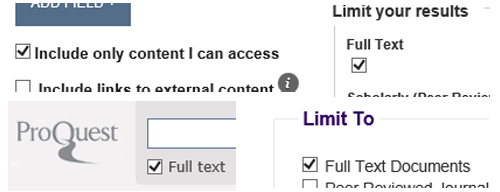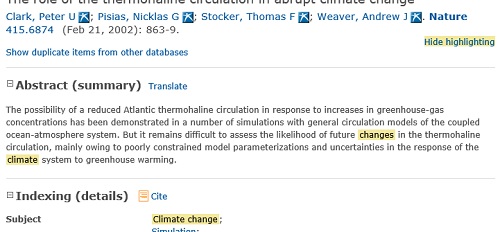It’s the time of year when finals, papers, and research projects are coming due. And there’s a saying among procrastinators – “if it wasn’t for the last minute, nothing would ever get done”. Well, for this semester, the last minute is now upon us.
But it’s easy to get busy, and you may be feeling overwhelmed, or behind on your papers and projects. And it’s true, your options are more limited the less time you have. But that doesn’t mean you can’t still do great research, and get a great grade. And there are a few things you can do to speed that process.
First, if you can, pick a topic that you already know something about. It makes it a lot easier if you don’t have to start from scratch – in fact, if you’ve done work on a similar topic in previous years, a book or article that you already have might be useful. If you can’t pick a topic that you already understand, then pick something popular, that a lot of people get fired up about. If you choose a topic that’s too original or esoteric, good resources will be harder to find. Things that were important innovations, historical events, or controversies – those will have plenty of sources. Also, make sure you pick a broad enough topic. Choosing something like the effect of cubism on subsequent drafts of Gertrude Stein’s novel The Making of Americans is far too narrow; you’ll have a hard time getting enough sources in time. But choosing something like World War II is too broad; it will be hard to say anything meaningful and you’ll be overwhelmed with information. Topics like how to prevent recidivism in violent juvenile offenders or the evolution of the beak are likely to have enough material available, while being a discrete enough topic that you can talk about it intelligently in ten to twenty pages. Remember, it’s easier to start too broad and winnow your topic down than start too narrow and struggle to find enough.
Second, search for full text only. You probably don’t have time for interlibrary loan (although it’s possible to get articles back within a day or two, if you’re fortunate), so full text databases are your friend. Ones like JSTOR, ProQuest, and EBSCO databases like Academic Search Premier are either all full text or you can easily click a check box to only get full text items back. And ebook databases like eBrary and EBSCO eBooks are the equivalent for book sources. Don’t be afraid to use the search function to quickly find just the pages of the book or article you need. There’s no sense reading all of a 30 page article or a 300 page book if there are only five pages on your topic!
Third, use summaries and other people’s research to quickly decide if you want something. For articles, this often involves reading the abstract first. That one paragraph can tell you immediately what the argument and conclusions were; and browsing it can save you a lot of time reading something you might not want. If the abstract sounds like it fits your paper, the whole article will, too. Also, use citations to get more on your topic quickly. Once you find one paper you like, the references at the end that the author used are likely to talk about the same things. And even if you’re not allowed to use Wikipedia as a source, each page there also includes citations at the bottom that can link you to more valuable, and admissible, research.
So just because it is the last minute, don’t worry. You can still put together an awesome final paper or project. And if you need any help, we’re here for you – ask us at iueref@iue.edu.



